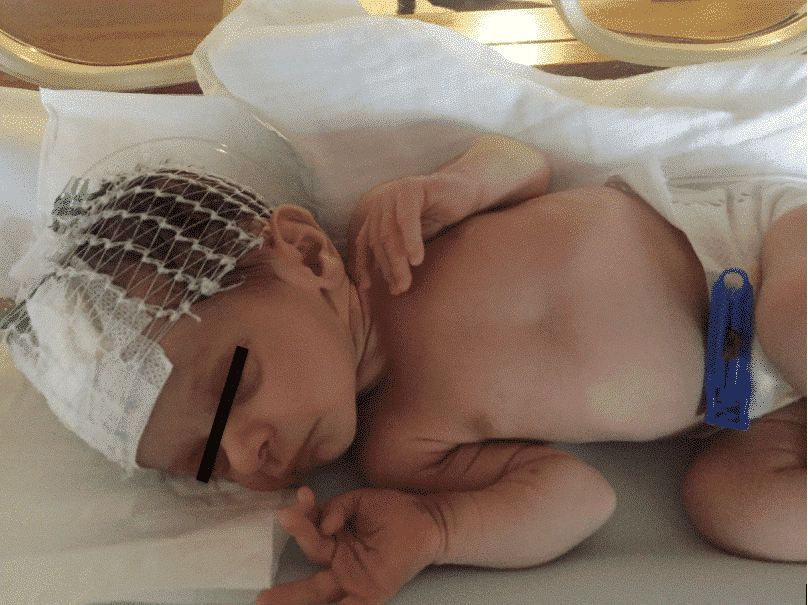
Severe Hypernatremic Dehydration in a Newborn - When Breastfeeding is Not Enough!
Background: Hypernatremia, an uncommon condition in newborns (NB), is defined as a plasma sodium value greater than 150 mEq/L, and occurs mostly in exclusively breastfed NB, due to excessive weight loss. Hypernatremic dehydration (HD) is a potentially fatal condition and is associated with cerebral edema and other neurologic consequences.
Case Report: NB, female, 12 days old (birth weight: 2800g), was referred to the Emergency Department for a birth weight loss of 30% and decreased diuresis. She was exclusively breastfed every 2 hours, with a maternal notion of good reflexes and tolerance. Physical examination revealed an emaciated appearance, jaundice, sunken eyes and skin turgor. Blood pressure (BP) measuring was attempted without success, capillary glycemia 96g/dL. A bolus of saline (10 mL/Kg), was administered, with good BP response. Venous blood gas analysis: pH 7.39, lactates 4.3 mmol/L, HCO3- 21.8 mmol/L, Na+ 180 mEq/L. She started intravenous correction of dehydration according to protocol. Analytically, hemogram was normal, Na+ 178 mEq/L, K+ 4.5 mEq/L, Cl- 143 mEq/L, urea 191 mg/dL, creatinine 1.39 mg/dL, C-reactive protein 1.45 mg/dL. Formula milk was initiated and the NB was admitted to the Neonatology unit for monitoring. She remained hemodynamically stable, with progressive normalization of the analytical parameters with sterile blood and urine cultures and normal transfontanellar ultrasound. After discharge the NB maintained follow-up in consultation, showing good weight evolution.
Conclusion: HD is potentially life threatening and its early diagnosis and proper treatment are imperative. It is a major preventable cause of child morbidity and mortality, so information and advice on newborn feeding and close surveillance of risk factors for breastfeeding failure (in this case an uninformed mother at discharged and no homecare follow up, due to pandemic) are indispensable for a successful breastfeeding.

Powered by Eventact EMS